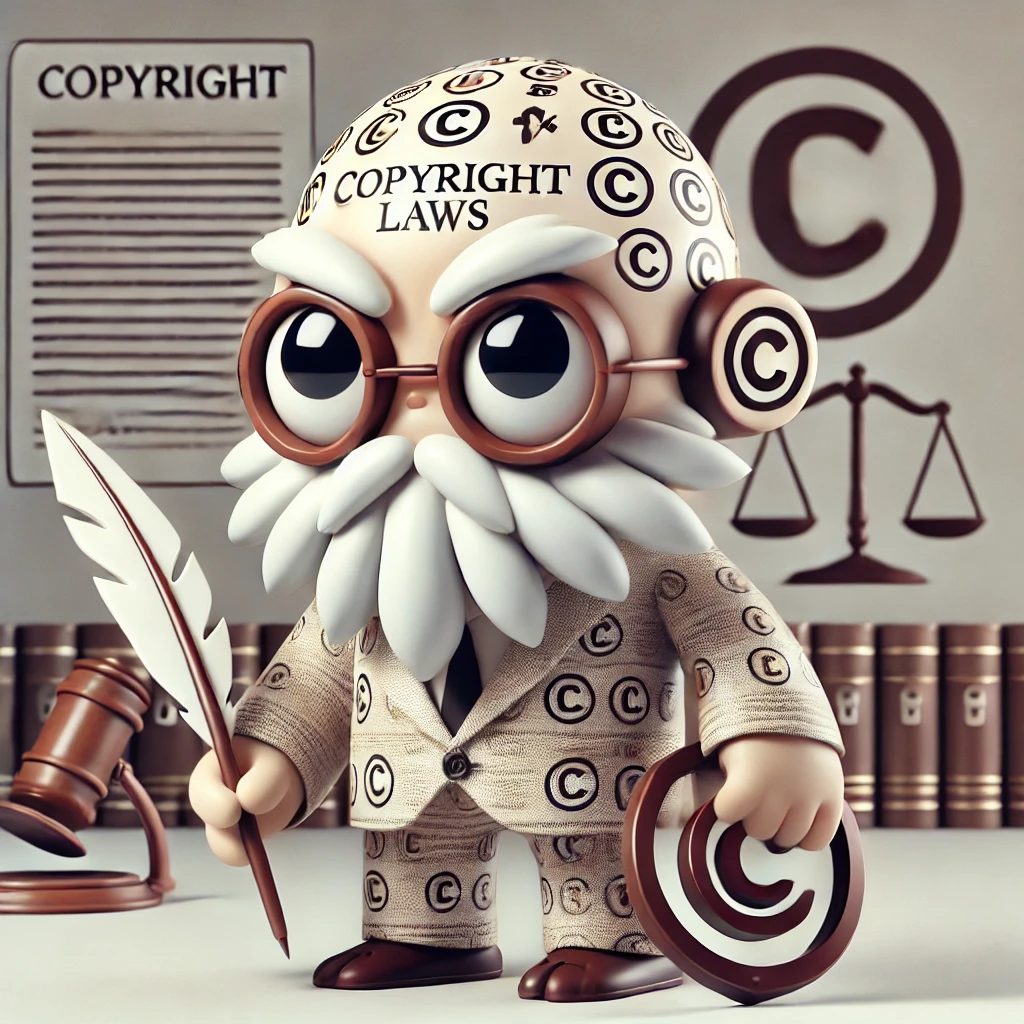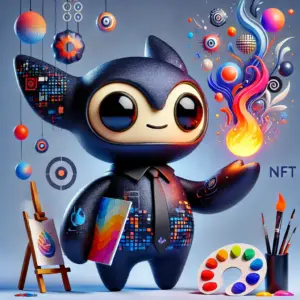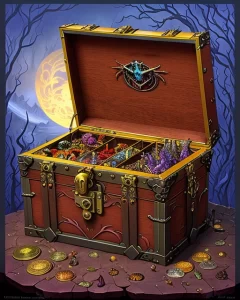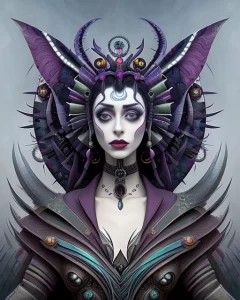The rise of Non-Fungible Tokens (NFTs) has introduced a novel dimension to digital ownership, profoundly affecting copyright law and its application to digital assets. While NFTs offer the promise of unique digital ownership, the complexities of copyright ownership and attribution are still being deciphered in the evolving landscape of blockchain technology. This comprehensive guide delves into the intricate connection between NFTs and copyright, providing a clear understanding of the legal framework surrounding these digital assets and shedding light on the challenges and opportunities they present.
Table of Contents:
- Understanding the Basics: NFTs and Copyright
- Dissecting Copyright Rights: What Does it Mean to Own a Copyright?
- The NFT Owner’s Rights: What Does Owning an NFT Confer?
- The NFT Creator’s Rights: Preserving Control Over Your Work
- Key Legal Considerations: Navigating the NFT Copyright Landscape
- The Future of NFT Copyright: Challenges and Opportunities
- Conclusion: Embracing the Potential of NFTs
- FAQs: Answering Your Questions About NFT Copyright
Understanding the Basics: NFTs and Copyright
Before diving into the intricacies of NFT copyright, it’s crucial to grasp the fundamental concepts of both. An NFT is a unique, non-interchangeable unit of data stored on a blockchain, often representing ownership of a digital asset like an image, video, or audio file. Copyright, on the other hand, is a legal right that grants the creator of original works of authorship exclusive rights to use, reproduce, and distribute their work.
The key takeaway is that while an NFT can be used to represent ownership of a digital asset, it doesn’t necessarily grant the NFT holder full copyright ownership. To understand the interplay between NFTs and copyright, we need to examine the specific rights granted by copyright law.
Dissecting Copyright Rights: What Does it Mean to Own a Copyright?
Copyright law grants creators a bundle of exclusive rights, often referred to as the “five exclusive rights”:
- Reproduction: The right to copy the work.
- Distribution: The right to make the work available to the public.
- Public Performance: The right to perform the work publicly.
- Public Display: The right to display the work publicly.
- Derivative Works: The right to create new works based on the original.
These rights, while extensive, are not absolute. Copyright law allows for certain exceptions and limitations, such as fair use, which permit limited use of copyrighted material for purposes like criticism, commentary, news reporting, teaching, scholarship, or research.
The NFT Owner’s Rights: What Does Owning an NFT Confer?
The ownership of an NFT generally signifies that the holder is the owner of the specific token, representing a unique digital asset. However, this ownership doesn’t automatically translate to full copyright ownership of the underlying asset. The scope of rights granted by the NFT owner can vary significantly depending on the terms of the NFT sale, the underlying asset, and the relevant copyright laws.
Typically, the NFT owner acquires the following rights:
- Ownership of the Digital Asset: The NFT represents ownership of the specific digital file associated with the token. This could be an image, video, or any other digital content.
- Right to Resale or Transfer: The NFT owner has the right to resell or transfer the NFT to another party. This allows for a secondary market for digital assets, creating opportunities for collectors and investors.
- Potential Licensing Rights: Depending on the terms of the NFT sale, the NFT owner may have rights to license or commercially use the associated digital asset. This could involve creating derivative works, using the asset for commercial purposes, or granting others permission to use it.
The NFT Creator’s Rights: Preserving Control Over Your Work
The creator of the digital asset underlying an NFT retains the original copyright to their work. This means they still possess the exclusive rights to reproduce, distribute, publicly perform, publicly display, and create derivative works based on their creation, subject to any contractual agreements they have made.
Here’s where it gets complex: If the NFT sale explicitly grants the NFT buyer full rights to commercialize the underlying asset, the copyright holder forfeits those specific rights to the NFT buyer. But, in most cases, the NFT sale only grants ownership of the token, not full copyright ownership. Therefore, the creator typically retains the copyright, albeit with some possible restrictions.
Therefore, NFT creators need to carefully consider the terms of the NFT sale and ensure that their rights are adequately protected. This may involve:
- Explicitly Stating Copyright Ownership: In the NFT metadata or accompanying documentation, clearly indicating that the creator retains copyright ownership.
- Contractual Agreements: Establishing clear contractual terms with NFT buyers, ensuring that license agreements define the scope of rights granted.
- Using Specific License Types: Employing licenses like Creative Commons, which allow for varying levels of commercialization and attribution, providing greater flexibility in controlling the use of the artwork.
Key Legal Considerations: Navigating the NFT Copyright Landscape
The realm of NFT copyright is fraught with legal complexities that require careful navigation. Here’s a breakdown of some key considerations:
The Issue of Attribution
Copyright law mandates attribution, ensuring that the creator’s name is associated with their work. In the context of NFTs, this can be a complex matter. While the NFT metadata may contain the creator’s name, it doesn’t automatically guarantee attribution when the NFT is transferred or used in subsequent works. To mitigate this, creators can embed information about their identity in the artwork itself or explicitly state attribution requirements in the NFT sale terms.
The Role of Smart Contracts
Smart contracts, the automated programs that govern NFT transactions, can play a significant role in defining copyright ownership and usage rights. By embedding copyright information and licensing terms within the smart contract, creators can establish clearer guidelines for how their work can be used and ensure royalty payments are automated. However, it’s crucial to note that smart contracts are not universally recognized as legally binding in all jurisdictions.
Royalties and Secondary Market Transactions
The ability to collect royalties on secondary market transactions, where an NFT is sold to a new owner, is a major discussion point in the NFT community. Smart contracts can facilitate automatic royalty payments, allowing creators to receive a portion of every resale. However, the scope of this right is still being explored legally. Many existing marketplaces do not currently implement royalties automatically, while some are actively developing mechanisms to support them.
Jurisdictional Challenges
The decentralized nature of NFTs presents challenges in determining the applicable copyright laws. An NFT may be created in one jurisdiction, traded in another, and used in yet another. This jurisdictional ambiguity can complicate copyright enforcement and dispute resolution.
Copyright Infringement and Intellectual Property Rights
The potential for copyright infringement is a major concern in the NFT space. As with any digital content, NFTs can be readily copied and distributed without permission. It is crucial for creators to ensure they have clear ownership of their work and take appropriate steps to prevent unauthorized use and distribution of their digital assets.
Furthermore, the growing popularity of AI-generated art raises questions about ownership and copyright when AI algorithms are used to create artworks. While the legal implications of AI-generated art are still being explored, it’s crucial for creators and NFT platforms to consider ethical considerations.
The Future of NFT Copyright: Challenges and Opportunities
The evolving relationship between NFTs and copyright presents both challenges and opportunities. The legal framework surrounding NFTs is still developing, and clarity on specific areas like royalties and secondary market rights is anticipated. However, this evolving landscape also presents opportunities for creators and collectors.
Empowering Creators
NFTs have the potential to empower creators by offering new avenues for distribution and monetizing their work. Royalties on secondary market sales and built-in attribution mechanisms can provide creators with a greater share of the value they create and enhance their connection with their audience.
New Forms of Digital Ownership
NFTs are blurring the lines between traditional ownership models and digital assets. The ability to own and trade unique digital items, from virtual land to collectibles, is fostering new forms of digital ownership and participation in the creative economy.
The Rise of Metaverse Economies
NFTs are playing a crucial role in the development of metaverse economies, allowing users to acquire, trade, and utilize virtual assets. As metaverse platforms evolve, the concept of digital ownership and the legal framework surrounding NFTs will be vital in shaping the future of virtual worlds.
Enhanced Transparency and Traceability
The immutability of blockchain technology enhances transparency and traceability in the art world. NFTs provide an auditable record of ownership history, making it easier to track the origins of digital assets and prevent forgery.
Conclusion: Embracing the Potential of NFTs
The intersection of NFTs and copyright is a complex and evolving field. While challenges remain, the potential benefits for creators, collectors, and the digital economy are significant. By staying informed about legal developments and navigating the intricacies of copyright ownership and attribution, creators and stakeholders can harness the power of NFTs to foster innovation and empower creative expression in the digital age.
FAQs: Answering Your Questions About NFT Copyright
Q: Do I need to register my copyright to protect my NFT?
While copyright protection in most jurisdictions arises automatically upon creation, registering your copyright can provide several advantages, such as stronger legal evidence of ownership and the right to sue for infringement. Consider registering your copyright if you plan to enforce your rights or if your work is commercially valuable.
Q: What happens if I buy an NFT, but the creator retains the copyright?
This is a common scenario. Owning an NFT generally means owning the token that represents the digital asset, but not necessarily obtaining the full copyright. You typically gain rights to the specific token and may have licensing rights for personal use or specific commercial purposes outlined in the NFT sale terms. The creator retains the right to use and license the underlying asset for other purposes.
Q: Can I create NFTs based on existing copyrighted material?
This is a tricky area. Unless you have permission from the copyright holder, creating NFTs based on existing copyrighted material can be considered copyright infringement. This applies to images, music, video, literary works, and other forms of content protected by copyright. Always obtain permission or use material that falls under fair use guidelines.
Q: How can I prevent my work from being used without my permission?
While you can’t fully prevent people from making copies of your work, you can take steps to deter infringement and protect your rights. This includes: clearly stating your copyright ownership in the NFT metadata, using licenses to restrict unauthorized use, and pursuing legal action if necessary.
Q: What are the implications of AI-generated art for NFT copyright?
The legal implications of AI-generated art are still being explored. There are different perspectives on copyright ownership when algorithms, rather than humans, generate the artwork. The debate centers around whether the AI developer or the person who inputs the prompts and guides the creation process holds the copyright. This is a developing area of law with no clear consensus.






